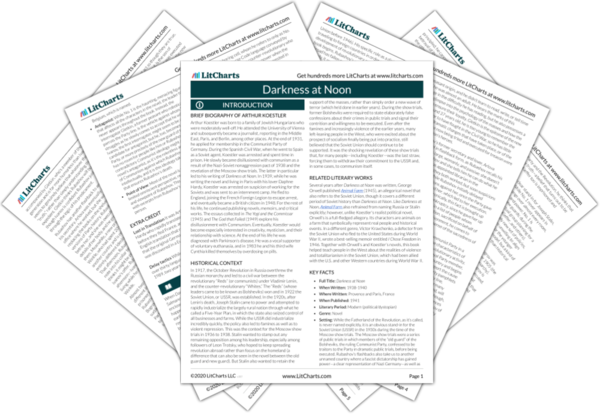Rubashov paces up and down his cell as he remembers sitting on the plush sofa in the art gallery. The young man,
Richard, the leader of the Party in the town, came a few minutes late and noticed Goethe’s
Faust on Rubashov’s lap. He sat down and Rubashov asked him about the list of his people. Richard said that he has the list in his head but that he also gave a list to his wife Anny, who was arrested last night. Rubashov saw the dull hope in Richard’s eyes that Rubashov might help him. Anny managed to pass the list to her sister-in-law in the flat, an ally, Richard said.
